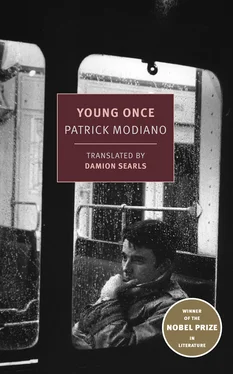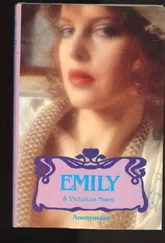“You took me here one night with Hélène and your mother,” Brossier said to him.
“You think so? We used to come here in the avenue Alphand days.”
“No, it was with Hélène and your mother. I couldn’t have been much older than you are now, Louis.”
Louis wasn’t listening to them. He was waiting anxiously for Odile to appear onstage. Up until then, Odile had not let him come see her perform; she was afraid his presence would give her stage fright. But Louis said he had no choice but to come along that night, with the people he called his “bosses.”
“It isn’t the same clientele though,” Bejardy observed, casting a cold look around.
He consulted the menu. Blinis and caviar. Krug champagne. Pierogies while they waited. He didn’t ask either Brossier or Louis what they wanted. A palpable authority emanated from his wavy black hair, his high forehead, his straight back and broad chest.
“No, not the same clientele at all.”
At the table closest to theirs, some Indonesians were ceremoniously bowing their heads before beginning their meal.
“Are they paying your fiancée well, at least?” Bejardy asked.
“I think so.”
Louis, unable to swallow even the smallest bite of food, nervously emptied his glass of champagne.
“Come on, eat,” Bejardy said, serving him a blini.
“Louis is nervous for his fiancée’s sake,” Brossier said.
“Don’t worry. I’m sure she’ll be wonderful.”
The Caucasian dancers bowed, to the jerky sound of music, and the lights went down. Only a pale blue beam remained, which lit up the center of the stage. Silence. A violin. She appeared in the pale blue ring, a little stiff in her bolero and long satin dress.
“Your fiancée?” Bejardy asked.
“Yes.”
She sang. Louis knew the song by heart and was terrified that she would forget a word or abruptly stop. He dug his nails into the palms of his hands and shut his eyes. But her voice remained pure. Odile didn’t seem to have any stage fright, and her motionlessness was rather charming, especially at the end, when she sang the old Jean Sablon hit, “La Chanson des rues”:
It speaks to you of sadness,
Of dreams and loves gone by,
And of the bygone years that only
Left you wondering why…
She inclined her chest in a shy bow. The soft clapping from the Indonesians was drowned out by Bejardy’s “Bravo! Bravo!” Brossier waved his arm and gestured for her to come join them. She took a seat next to Louis.
“This is Monsieur de Bejardy,” Louis told her. “You already know Jean-Claude Brossier.”
Bejardy shrugged. “Please, call me Roland.”
He bent forward and kissed Odile’s hand, and it was unclear whether he meant it with any irony or not.
“I liked your act very much. Especially ‘La Chanson des rues.’ ”
The bird imitator came onstage. The various calls, coos, trills, and chirps unleashed hilarity among the Indonesians. Having sat there so impassively before, they seemed unable to keep their wild laughter under control. They infected Brossier with it.
“Sorry.”
“I liked it very much,” Bejardy repeated, “and I’m sure you are going to have a wonderful career.”
“Me too, me too,” Brossier said, between tears of laughter.
The birdcalls became more and more shrill and frantic. Louis started to laugh as well. Odile, too, a nervous laugh. Then the birdcaller fell backward, as though shot through the forehead, and, lying on the ground, arms outstretched, let out an interminable ululation. He suddenly sprang up and disappeared.
“You should have a little champagne,” Bejardy said to Odile. “And sing ‘La Chanson des rues’ for us again.”
She drank from Louis’s glass. Bejardy ordered another bottle.
“Have you been performing at this club a long time?”
“No, not too long,” Odile answered timidly.
“She’s going to cut a record,” Louis said. “She’s here to try out her songs.”
Odile gave him a questioning look. How long would they have to sit here with Brossier and Bejardy? Louis answered with a wink, and she smiled.
“I used to know the owner of this club, but he can’t possibly still be here,” Bejardy said. “You remember, Jean-Claude. A guy who always wore riding pants…”
“The one now doesn’t wear riding pants,” Odile said.
Louis poured Odile another glass of champagne, and, as if he knew that she hadn’t eaten: “You need to eat something. You must be hungry.”
“Yes, of course,” Bejardy said. “Please, have some blinis.”
He summoned the maître d’.
“But first, a toast, to your health,” Brossier said to Odile.
“To a singer of great talent,” Bejardy said.
They both raised their glasses. Odile looked at them, half curious, half amused, as though observing the frolics of two exotic animals in the zoo. She kicked Louis under the table.
“You’re right, Jean-Claude, I remember now,” Bejardy said suddenly. “We were here with Hélène and my mother…”
•
At around two in the morning, Bejardy invited them over for a nightcap. They hailed a taxi. During the drive, Odile fell asleep, her head on Louis’s shoulder.
Bejardy turned on all the lights in the room where he had received Louis on Louis’s first visit, and the sudden, too-bright glare was blinding. Bejardy rolled a drink cart over to them. Louis and Odile politely refused any more alcohol. Brossier and Bejardy poured themselves a little chartreuse.
“This really is a nice drink,” Brossier said after taking a sip. “You feel like you’re diving into the green… You should take a plunge too, Louis.”
“A real poet, isn’t he?” Bejardy said, turning to Louis and Odile. “You both look exhausted. You can sleep here, I have a guest room for friends. Yes, yes, I’d be happy if you did. It’s not a work day today.”
He stood up.
“Come with me, I’ll take you. Jean-Claude and I will do a little more work. I brought the folders.”
“Of course, Roland,” Brossier said.
They had bright eyes and the fresh, energetic look of people who had just gotten a good night’s sleep, which surprised Louis.
The bedroom was next to the living room. Its light blue walls, thick carpet, fur bedspread, and the veiled light of a bedside lamp created a gentle, relaxing atmosphere.
“The bathroom is over here…”
Bejardy opened a door and turned on the light, revealing a bathroom with blue mosaic walls and floor.
“Good night. You’ll be able sleep through the night for once, my dear Louis. And tomorrow, we’ll meet at Pointare, one o’clock sharp.”
This was a restaurant near the garage, where Bejardy often had lunch.
When he had left the room, they stretched out on the fur bedspread, and as though she did not have the strength to undress herself, Louis took off her shoes, then the rest. They saw their reflection in a large standing mirror.
“Your friends are working some more?” Odile asked.
“Yes.”
“What are they doing?”
“I don’t really know,” Louis said.
They heard Brossier and Bejardy talking in the living room. Later, Louis woke up and heard them still talking, their voices joined by others. He listened to the uninterrupted murmur of conversation and felt himself relax.
Odile slept. Through the window, whose curtains they hadn’t drawn, he saw the Seine and the bright building of the Citroën factory on the opposite shore.
•
Bejardy gave him Saturdays and Sundays off. Brossier was free on weekends, too, and he suggested to Louis that they spend their “moments of leisure” together. He wanted to introduce him and Odile to his fiancée. By getting closer to Brossier, Louis would surely get more information about what had prompted Bejardy to entrust him with a job, and who exactly this Roland de Bejardy was.
Читать дальше












